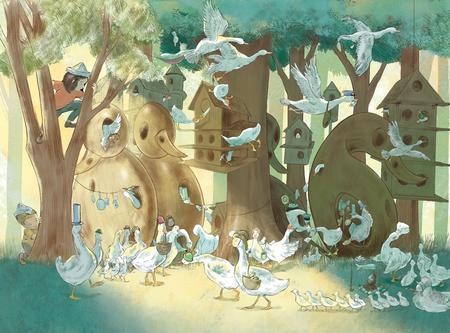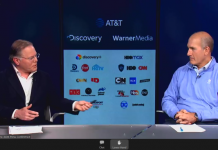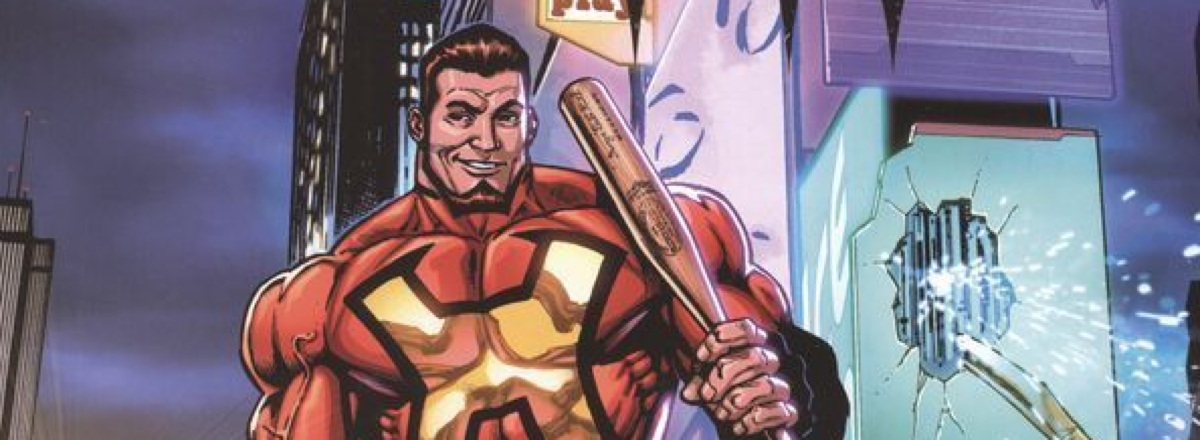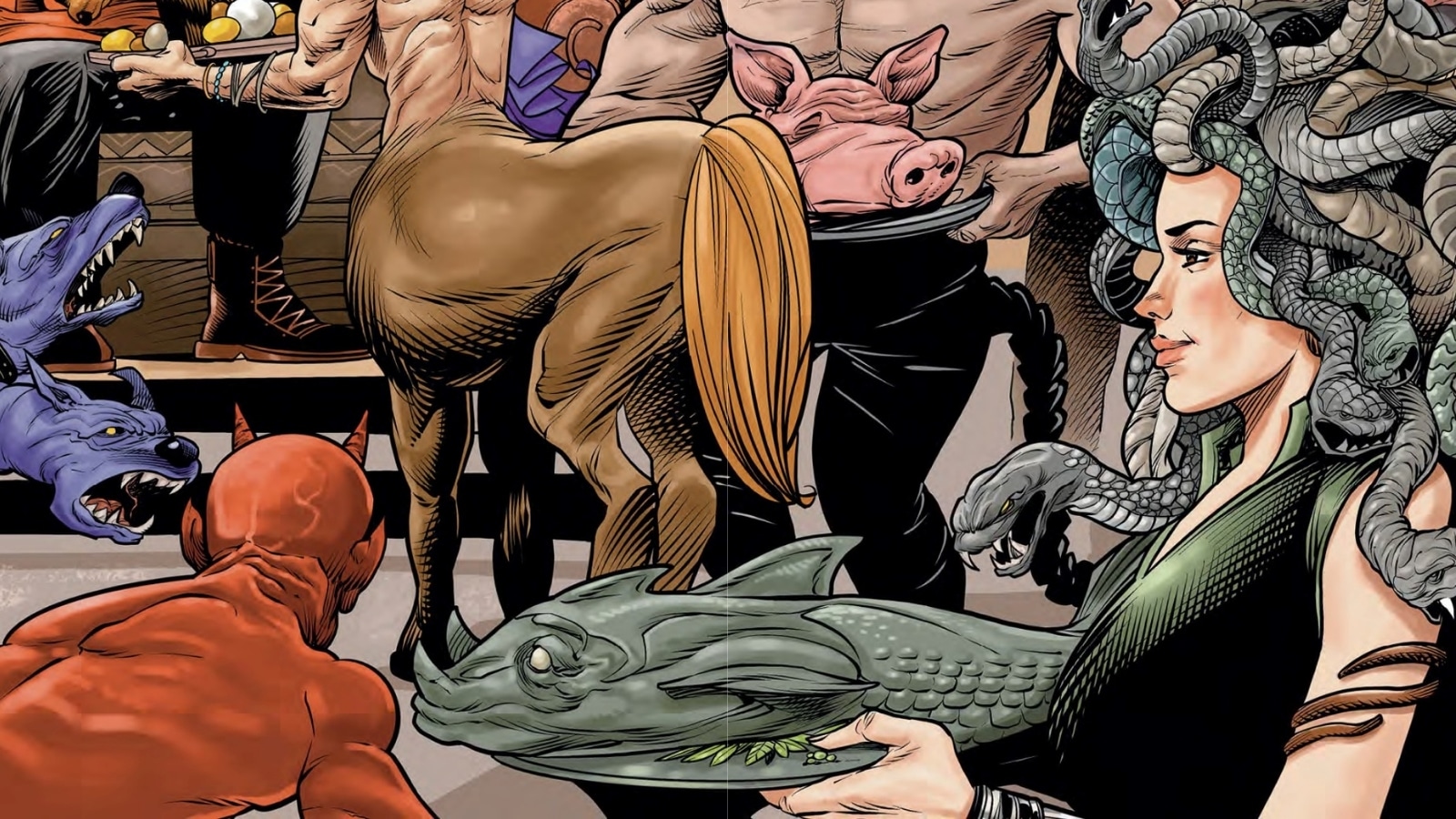Children’s book illustrator and sometime cartooner Jed Alexander read my piece on top selling graphic novels the other day, and spun it off into his own piece entitled The Future of Comics: A Casual Readership. While I agree with the basic premise, I think Alexander went a bit far in condemning superhero comics as purely a niche product:
Despite attempts to attract new readership with recent revamps like Marvel Now! and The New 52, the two largest comics companies ,Marvel and DC, have consistently catered to their long standing fans. These companies get most of their business through the direct sales comics market (comics shops) rather than bookstores. They target a rapidly dwindling fan base of aging adult readers. Instead of reaching out to new readers, their strategy has instead been to get these older readers to buy more comics. Because of this approach, they still manage to sell in relatively high numbers, but aside from a few spikes in sales a result of the speculators market, these numbers have been steadily decreasing. It is because of the fan market that Marvel and DC and some of the smaller direct sales only comics companies continue to reach the bestseller lists.
Japanese Manga, since they cater to a younger fan base outside the direct sales market, are one of the few exceptions to this rule, but still represent a niche market.
The idea that superhero comics are only read by aging readers is just patently not true. It IS true that sometimes they are marketed that way, but there are plenty of younger readers (college age and up) who got drawn in by recent events and revamps. And by virtue of the Marvel movies alone, superhero characters are better known than ever. The comics don’t really benefit from the movie audience, but I’ll hold on to my bathwater along with he baby by stating that superhero culture is pretty darned mainstream these days.
Now, what I DON’T like is when “superhero comics” are used interchangeably as a term for “Mainstream comics”—it’s silly to say Batman isn’t mainstream, but so is Maus and Alison Bechdel these days. Alexander is correct in saying that there is a much larger audience that appreciates comics without necessarily slabbing their copy of The Disgusting Room by Austin English.
[Art above by Jed Alexander.]









I sometimes wonder whether a well-funded publisher could build a line of superhero comics for casual readers, that aren’t focused on editor-driven soap-opera plotting, legacy trademarks, and gotta-buy-em-all crossover marketing. In the early 90s, everyone was trying to launch another DCU/MarvelU, and these days there are a few companies trying to do the same thing but on a smaller scale (e.g. Valiant Universe 3.0). But a line of superhero comics with mutually independent titles, original characters, and creator-driven three-act plotting….?
I think mainstream superhero comics have moved from emulating daytime dramas—where one story is building as another is climaxing and the viewer must remain consistently engaged for the life of the program—to nighttime dramas. With a nighttime drama, a viewer may step in for a season, or until a particular plot he is interested in is resolved. You don’t have to watch all of The Wire. You could pick up season two. You could watch one episode of Scandal. This is akin to a reader picking up all of the Brand X comics featuring a certain creator, or picking up a graphic novel dealing with a Brand X event. This approach is definitely friendlier to the casual reader or fan of a particular creator. Now it’s just a matter of getting those superhero comics to the casual fan. Digital comics are a big help, though the prices are steep. And marketing departments will have to step up big time, reaching out to communities long overlooked.
Well said, Heidi. I also think many folks define the comic industry in narrow terms. And in the same breath, it’s great to see the wider impact of comics in our culture. It’s a great time for comics and the casual reader has plenty to choose from, especially when it comes to digital as Cheryl was saying.
I imagine the problem with the way things are is that it’s nearly impossible to create a marketing plan to the casual comic reader because they are so diverse. Whereas, the superhero genre is grandfathered in and easily accessible.
[I cut myself off]… In short, the infrastructure is there.
Also, the overall comics market has grown substantially in the past several years, including super-hero comics. His comment about manga I found interesting, since we’ve seen manga publisher after manga publisher close up shop in the US over the same period that the comics market was growing.
It’s like he was using data from 2002.
Never understand the animosity and derision directed at superhero comics. If superhero comics are crucial to the life of the industry, then just accept that they make it possible for the stores and publishers to stay afloat and to take risks on other ventures, and that they provide an opportunity for an audience to find divergent books. If they aren’t, then go ahead and compete with great stories and art about other things, and quit criticizing people who would rather read stories about Green Lantern than about unemployed people pontificating about relationships. I read everything, and get a little tired of the resentment towards a portion of the industry.
So i mostly agree with him, but the i don’t see it as a casual readership taking over but more the different demographics are just evening out in terms of fandom with a lot of overlapping. dedicated fandoms are fading away while a more catch all nerd is emerging: the Whovian-Otaku-Superhero-Indie-Fantasy-SciFi-kind of nerd. were in a age where there’s no sacred cows but one multi-headed sacred cow everyone more or less accepts.
“Never understand the animosity and derision directed at superhero comics. If superhero comics are crucial to the life of the industry…”
I assume the hate on capes is just part of the rebellious/DIY/punk sprit that it takes to make indie comics. For a long time Superhero comics made 95% of the money and defined the industry. So upstarts eject the man (Superman) as Apple computer users once thought they were being individualists by using something besides IBM. ;)
It’s difficult to change public perception of superhero comics. If a new publisher enters the market and introduces a line of new superheroes who are not similar to the existing model, the hard core superhero comic buyer might reject them. And the casual reader might not want to read about superheroes at all, otherwise they would already be doing so.
The market is already mature (okay, okay), the superhero is already defined as the tights wearing unhappy loner with a need to make things right.
I view this as being analogous to the rise of casual gaming. The “hardcore” gamers are still buying plenty of product and providing enormous amounts of revenue, but they’re NOT the only game (pardon the pun) in town any longer. Angry Birds and Candy Crush haven’t supplanted Call of Duty, they just made the whole market a lot bigger.
And trust me, this exact conversation is playing out in the gaming community too.
I think sueprhero comics will be the main cornerstone of the industry for the foreseeable future.
The troubling thing to me, is that so many creators aspire to work in Superheroes as the ultimate end game, as if that’s being called up to the majors. While there’s nothing inherently wrong with it, you can see that in their indie work. As if they are auditioning for a big 2 gig through their creator owned. As a result, experimentation and art suffer, and we get indie books, that really just want to be demo reels.
As high quality as comics are nowadays, they also are a bit stale and stiff. Layouts are often tightly gridded and fill up a page. White space is practically evil, and elements of design and collage are rarely used. Steranko and Kirby’s creative experimentation’s would have been destroyed by today’s comic fans as “lazy” art. I dunno, i’d just love to see stuff i haven’t seen before in my comics as opposed to clean, polished and expected work.
I think that sort of artistic diversity would actually do a lot to grow the market. As currently situated, if you don’t like the one or two artistic directions you find in comics, then you’d be turned off to most everything.
“I view this as being analogous to the rise of casual gaming. The “hardcore” gamers are still buying plenty of product and providing enormous amounts of revenue, but they’re NOT the only game (pardon the pun) in town any longer. Angry Birds and Candy Crush haven’t supplanted Call of Duty, they just made the whole market a lot bigger.
And trust me, this exact conversation is playing out in the gaming community too.”
I would have to add indie games into that conversation, just like in comics.
There’s more than Causal VS Superhero (which, if you’re going to label–not you–a conversation like that, you’ve limited the conversation and are not seeing the whole picture). How the rise of indie in comics is changing the landscape. And how the landscape has changed in games because of indie games now having heavy foundation.
Thanks Heidi!
First I want to say that I actually really like superhero comics. A lot. While I find the current Marvel and DC product hard to relate to, the genre itself very much appeals to me. In fact, I would love it if there were some superhero comics that were actually written with a kid audience in mind, without condescension or being overly cute. Manga isn’t a bad model, but they don’t have to BE manga or look like manga. And right now, kids love the movies and cartoons, but seem to be staying away from the comics. So I hold no derision for the genre, I just don’t think it needs to dominate and I don’t care for it in its current incarnation.
As for superhero culture: I agree. It’s extremely prevalent. I wonder though, if the same superhero fans who buy Marvel and DC comics could get their fix in another medium, with the same level of complex continuity, would they abandon ship? Is it comics, or superheroes? If a series of low-budget CGI cartoons could be made that do the same job and could sustain the same numbers, would it fulfill the same need?
I know this is a big hypothetical, but it feels like a lot of new comics series want to be TV shows more than they want to be comics. A lot of superhero comics are drawn in a very illustrative style, with very little formal invention. The late 90s “Widescreen” look is very much indicative of this kind of thing.
By the same token, I think it’s great we’re seeing more genres like horror and crime added to the mix. But the superhero comics still drive the direct sales market.
I think we’re also ignoring the casual readership represented by books like Archie, ( I write more about that here: http://jedalexander.blogspot.com/2014/01/why-archie-comics-matter-and-why-comics.html
and successful kid friendly books like Diary of a Wimpy Kid and Raina Tegemeier’s books that consistently dominate the bestseller lists.
DC and Marvel publish soap operas.
WWE is all about the soap.
But there are superhero titles being published, both in comics and in prose, for kids.
How did this play out in Science Fiction, which had a similar evolution thirty years before comics? Did the readers who grew up on BEMs and pulps react strongly to the New Wave of Dangerous Visions and soft SF? Were they shocked when Spock’s glamour encouraged women to attend SF conventions?
I think that’s the first time I’ve read the word’s “spock’s glamour.” I’m not going to touch that one.
I think the evolution of superhero fandom isn’t quite the same as sci-fi/fantasy or “speculative fiction’s evolution since it’s more of a subcategory of same. Also we’re talking about two different things here: comics the medium, and superheroes the genre, which have clearly spun off into other media and contrary to popular opinion, are not synonymous with comics.
I think I’d equate the evolution of superhero comics to something akin to Gregory Maguire’s Wicked vs. the original Wizard of Oz. One doesn’t supplant the other. Modern updates of classic children’s lit with a darker spin are a genre in themselves, and have proven popular in comics like Fables, but what if books like Fables represented 90% of the direct sales market? And what if the original Wizard of Oz was no longer read by kids, but only nostalgic adult fans? That’s Lee and Kirby’s Fantastic Four and Ditko’s Spider-Man at this point.
It would help if superhero comics were more accessible to new (and casual) readers, as they were in the ’60s. Now you almost have to have spent decades immersed in the Marvel and DC universes to make sense of the things.
And, Heidi, superhero comics ARE the mainstream these days in comics, just as franchise films like HUNGER GAMES and TWILIGHT (and the superhero movies) are the mainstream in cinema. Anything else is considered risky, so it doesn’t get the widest distribution.
Superhero comics aren’t the mainstream. The only superhero comic that’s at the top of the bestseller list is Watchmen. The direct sales market is NOT the comics market. Marvel and DC may produce more titles, but that doesn’t mean they produce all the bestsellers.
George: I bet you’ve never heard of Ook and Gluk. How about Amulet? These are bestsellers, but you’re not going to find them in the comics shop, and they’re not targeted at you.
I should say “consistently at the top of the bestsellers list.” Dark Knight used to be up there too, but not so much these days.
The troubling thing to me, is that so many creators aspire to work in Superheroes as the ultimate end game, as if that’s being called up to the majors. While there’s nothing inherently wrong with it, you can see that in their indie work. As if they are auditioning for a big 2 gig through their creator owned. As a result, experimentation and art suffer, and we get indie books, that really just want to be demo reels.
Indie creators get more creative freedom, a better shot at retaining ownership, and more direct share in the profits. But if you’re not one of the few hundred indie creators currently active with a big enough hit, you’re not necessarily making a living on it. And even if you are, you’re living on that hit and unsure if the next will have the same market impact. The Big Two offer contracts with set page rates and sometimes even limited benefits. It’s art vs. commerce, the same as in film. Becoming an indie success is working a lot on spec and hoping for a good deal, and the Big Two are one of the major sources of “a good deal” even in the current industry.
Don’t judge creators too harshly if their Image series reads like a demo for Marvel/DC or a film/TV pitch. There’s a lot more money and stability at the Big 2 and Hollywood.
(And all the James Joyce wannabes out there typing a novel length rebuttal can go ahead and delete it…I’m well aware Marvel/DC/Hollywood aren’t stable like most 9-5 jobs; my point is just that they are MORE stable than the indie comics scene)
Are older readers really the main buyers of Marvel & DC? And do Marvel & DC market to them? At 49, I still love superhero comics (along with a wide swath of others), but buy precious little Marvel and no DC. I’m turned off by the character killings, corporate storylines and political agendas that have taken over modern comics. Many folks my age feel the same way. But the kids seem to like that stuff, at least enough to keep it limping along. I’m not sure Marvel & DC want my money, if anything they are directly marketing against me.
I’d kill for a good Superman or Batman story, but that boat has sailed, possibly forever. These days I’ll take companies like Dark Horse and Dynamite–fun adventure-driven stories with no overwhelming political agenda.
i guess my point, was that if a creator did something experimental that kicked ass, that would get them a lot more notoriety, buzz and sales than trying to demonstrate that they can be a generic house style artist. Image books are starting to have a ‘look’ in art and coloring especially. I don’t know if that’s more a case of what the publisher gravitates towards, or what people think fans want to see, but there is a similar path that so much of it goes down. I’d like to see more variation and experimentation. No risk, no rewards.
Don’t get me wrong, there is some GREAT creator owned work out there, but to me it so often looks restrained and predictable. These artists do far more interesting and experimental work in their online sketchbooks and warmups than their published indie work at times.
I guess its like a great live band that sounds stiff and boring when they record in a studio.
“Superhero comics aren’t the mainstream. The only superhero comic that’s at the top of the bestseller list is Watchmen.”
You’re referring to graphic novels, I assume. Superheroes still dominate pamphlets, just as superhero discussions dominate the majority of comics-related websites.
“I bet you’ve never heard of Ook and Gluk. How about Amulet? These are bestsellers, but you’re not going to find them in the comics shop, and they’re not targeted at you.”
Who are they targeted at? Five-year-old children? Lesbian strippers? You’re very arrogant to presume something is “not targeted” at me.
George: if it’s arrogant to assume that you’re over the age of 13, then call me arrogant. Amulet is by Kazu Kibuishi, and is targeted at tweens.
http://www.amazon.com/The-Stonekeeper-Amulet-Book-1/dp/0439846811/ref=sr_1_2?ie=UTF8&qid=1390745187&sr=8-2&keywords=Amulet+kazu
Ook and Gluk is by Dave Pilkey, the creator of Captain Underpants, and may not be for 5 year olds, but is in fact, for kids ages 7 and up:
http://www.amazon.com/Adventures-Kung-Fu-Cavemen-Captain-Underpants/dp/0545385776/ref=sr_1_1?ie=UTF8&qid=1390745253&sr=8-1&keywords=Ook+and+Gluk
Both are extraordinarily successful. My guess was that these books were totally off your radar and it seems like I was correct. Instead of looking them up and discovering what I was talking about, you decided to assume I was being a jerk. But this kind of my point. Comics fans aren’t willing to look outside the direct market when they consider what the medium represents. If you want to call me a jerk for making this assumption, you are welcome to, but you’ve pretty much already proved it.
The periodical market is directed towards hobbyists. That’s the wednesday direct sales comics crowd. That’s a very specific niche audience. Most people don’t buy their reading material every wednesday. Particularly younger kids. That’s why Amulet, Bone, Diary of a Wimpy Kid, Raina Telgemeier’s Smile, and Drama, Toon Books and it’s complete line of comics for young readers (there’s your 5 year olds), and many others are a significant part of the comics market, and this is where many future comics readers come from, and they don’t have the wednesday habit.
I used the graphic novel bestseller list because graphic novels reach outside of that direct sales model, reaching the casual readers and not just the hobbyists.
My definition of “mainstream” is, I believe, similar to Heidi’s, and that means: not the direct sales market.
But diehard wednesday fans, when they discuss comics as a whole, keep coming back to the direct market as though it is not only the mainstream but the only venue that matters when it comics to comics and comics sales, and it simply isn’t.
Discounting the direct sales market entirely doesn’t mean it doesn’t exist, or should not be factored into what is considered ‘successful’.
FWIW, your weird animosity towards all things ‘direct market’ or ‘superhero’ comes as very condescending. Perhaps an adjustment in your rhetorical style may help people understand your points better.
I don’t have any animosity towards direct sales comics shops. I am a frequent customer at my local shop–the owner is a friend, and he has no control over what sells any more than he can help selling it to stay in business.
I do not care for the dominance of Marvel and DC. I do not care for their unfair hiring practices, gender discrimination and the way they treat their freelancers. I resent the cynical way they exploit their readers with multiple title “events”, by killing off and reviving characters, and by requiring you to read multiple titles to understand and follow their sprawling narratives. I do not care for the way they exploit the speculators market by trying to compel collectors to buy more copies of the same book with multiple covers and covers with flashy gimmicks. (DCs recent 3D cover fiasco is a good example).
If the mercenary nature of the way they use these strategies as marketing tools is in any doubt, I recommend you read Marvel Comics: The Untold Story By Sean Howe if you haven’t already, which details how all of these practices–aside from gender discrimination, which is endemic–originated from bottom line, corporate decisions.
If the nature of my animosity toward Marvel and DC–not superheroes, but these two companies–is still “weird” to you, I hope that you can now at least be able to see where it comes from.
I understand that people love these comics. I’m not saying you shouldn’t love these books, or appreciate the artistry that goes into them. I am saying that the corporations that produce them engage in a business model that exploits its readership in a way that I find unethical.
This said, I am not discounting the direct market, but when two companies and one distributor dominate a retail industry, I think it’s in a precarious position. These aren’t Apple stores These are mom and pop retail businesses at the mercy of corporations that can dictate whatever terms they want to.
Rather than discounting the direct market, I am trying to say that the fan base needs to pay more attention to what comics are read and sold outside the direct market, and question whether the current direct market model is sustainable. If comics shops are to survive, they need to get out from under the grip of these two companies. The direct sales market is NOT synonymous with comic shops, it is just the current model under which they do business. I think if they were able to do a successful business outside of this model, they would.
<>
No doubt…but the comic shops I’ve gone into, both high end and funkomatic — seem to partition kids book and toys in front of the store (for the kids that accompany the Wed crowd) while the rest of the store is wallpapered by the Big Two. And now Walking Dead is all over the place, kind of matching that wallpapering, Other Image books seem hard to find in half the stores I’ve seen or kind of in back like how Alan Moore has a bookshelf etc, Underground types books (or big time casual readers that might be in same family as the Amazon hits ) are in an even odder place. Just what I’ve seen.
Maybe its worth exploring whats the realationship to retailers to rest of industry. Are they just dupes for the Big Two till it all goes digital and trade? Image gets well placed by Comixology yet Image has that direct to Dropbox deal, which can’t be thrilling the retailers (or Comixology) The big two get too much play on digital stores , almost reflecting the land retailers stores approach.
I always thought independents should at least be independent on digital. Marvel and DC might be a case where guys love these characters and keeping their jobs, whatever ground they run the market into , whatever, it matters to them if they can keep floating and getting paid. I’m not saying the creators feel that way but they ‘ve got to make livings too., The characters are just mixed, mashed and crashed to get to the next years numbers and keep everybody above water. If a few art hits come out it, sweet but we’re getting the next island seems to be the outlook. They aren’t the characters the public’s seeing in the movies . (more reason the Ditko, Kirby, Siegel, Shuster, Cockrum etc should be compensated back for real, nobody. coming up with that stuff now)
Though I think the big two miscalculate their audience by looking down on its fanbase as just a bunch of gamers and horror lovers and skewing superhero books that way. Even that audience seem to catching on. Stories without ‘verses used to work just fine before. Kind of cynical indulgences at the top really.
p.s. Does the Amazon list reflect the Apple iBookstore list? Or is Amazon just the bigger market.
Heidi writes about Bookscan (where these numbers come from) and there’s a pretty intense and well informed discussion that follows. Here’s the link:
https://www.comicsbeat.com/just-how-accurate-is-bookscan-anyway/
Jed: Thanks for the info about Amulet and the rest. I’m not angry and I don’t think you’re a jerk. Honest!
Before you dismiss the Direct Market as “not mainstream”, you should probably look at that bookscan article and really think about the numbers. Yeah, there are blockbusters like Wimpy Kid that put the top selling comic in the DM to shame, but how many book store graphic novels sell in a year what it takes to make it into the top 150 in the DM every month?
Mike
George: I’m glad I spurred your interest in Amulet and no hard feelings. To give you some idea of how popular Kazu Kibuishi’s work is, he was recently asked to do the covers for the official reissue of the Harry Potter series. Amulet is VERY popular.
As for the question of what’s “mainstream”:
The direct market relies on each hobbyist or fan to invest a lot of money every single week in comics. It’s not allowance money. It’s a serious piece of their income. There’s no other way to follow a comics “event” than to spend a big hunk of change every week on comics. That’s not mainstream behavior. That’s fan behavior. Less people buying more comics. That has a tendency to skew the numbers. Fans keep these kinds of markets alive. Like Tabletop RPGs. Like Magic cards. A lot of money is spent by diehard fans.
The mainstream is the people that go to the superhero movies and don’t buy the comics. They’re the people whose kids check out Diary of a Wimpy Kid from the Library. They buy less books in general, but when they buy a book, it’s more likely to be Wimpy Kid than Spider-Man. That’s my definition of the mainstream.
But it’s a good question: is the mainstream numbers of units sold, or is it how much a book enters the popular consciousness? More people are aware of Diary of a Wimpy Kid than Watchmen, let alone whatever Marvel and DC title is charting at the moment.
But what is it that we consider mainstream behavior? Is collecting magic cards mainstream behavior, or fan behavior? Is watching more than a dozen different anime titles fan behavior, or mainstream behavior? Is buying every issue in an event comics series mainstream or fan?
I’m not indicting fans, or fan behavior–I buy comics just about every week and am most definitely a fan–but I don’t think superhero comics have been mainstream for a very long time, if we’re talking about a casual readership vs. a fan readership. With superhero comics, more often than not, if you read them, you are a fan, a committed reader.
I noticed that Heidi named this article “Casual Readers vs. Superheroes” which I think, is telling. It’s not “Casual Readers vs. Comics Fans” but “Casual Readers vs. Superheroes.”
The intention of my own post was not to present casual readers as the adversary of superhero fans, but to present casual readers as a desirable extension of what comics can be, and should be. One doesn’t have to win out over the other.
I do think that the way superhero comics are marketed is predatory in a way that other print media is not. The aggressiveness of the way superhero comics are marketed to their fan base is more like toys than literature, and the crossovers and other bottom line imperatives compromise the quality of the material. Unfortunately, Marvel and DC superhero comics ultimately are seen by their parent companies as product. They are an extension of the franchise. Hulk is seen as the product, and the comics, toys and movies are seen as the merchandize, with the comics on the bottom link of the chain. And I think that kind of sucks.
Or I should say, “Hulk is seen as the franchise.” Which doesn’t mean you can’t make a great Hulk comic. But it becomes hard to do so when under the dictates of a corporate owner who is worried about stuff like brand consistency.
Comments are closed.